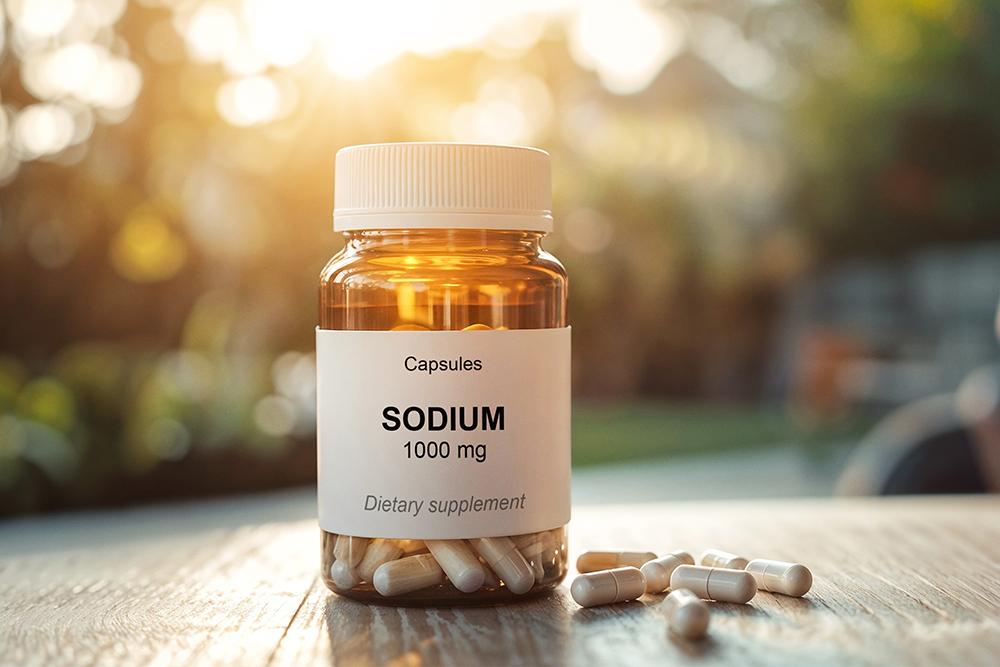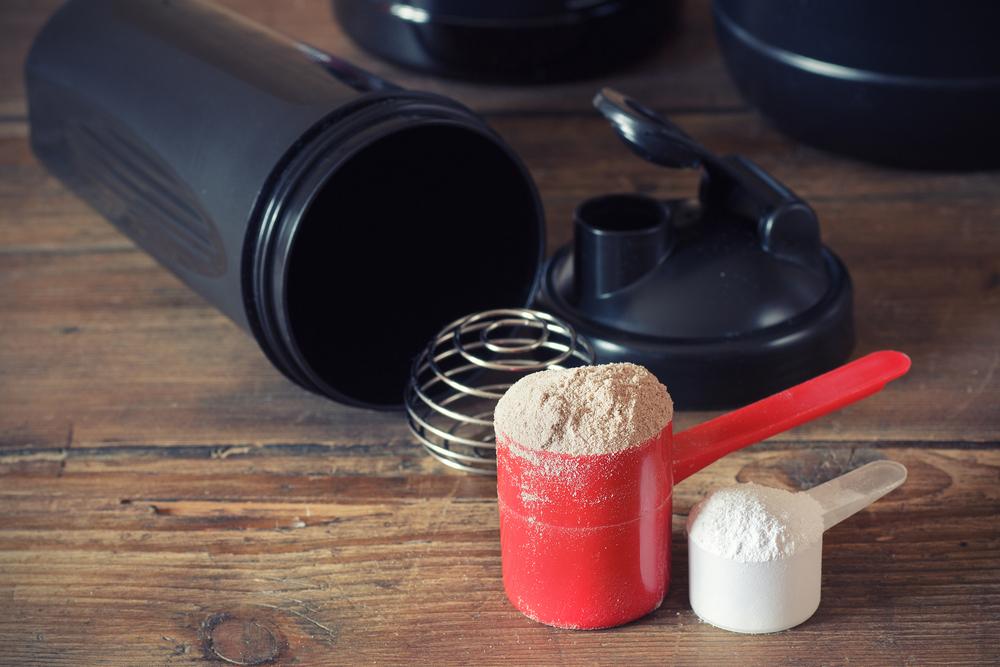 At some point, almost every athlete has wondered if they need to use supplements to perform at their best, whether it’s vitamins for general wellness, whey protein for muscle growth, or a B6 pill for energy. The information below will help you decide if you truly need a supplement, or if you can get all the nutrients you need from food alone.
At some point, almost every athlete has wondered if they need to use supplements to perform at their best, whether it’s vitamins for general wellness, whey protein for muscle growth, or a B6 pill for energy. The information below will help you decide if you truly need a supplement, or if you can get all the nutrients you need from food alone.
Through this five-part series on supplements, you will find an overview of the dietary supplement industry so that you can decide if the potential benefits of dietary supplements outweigh the risks. And, if you find you do need to use supplements, how you can better choose a low-risk product.
As an athlete, do I need a dietary supplement?
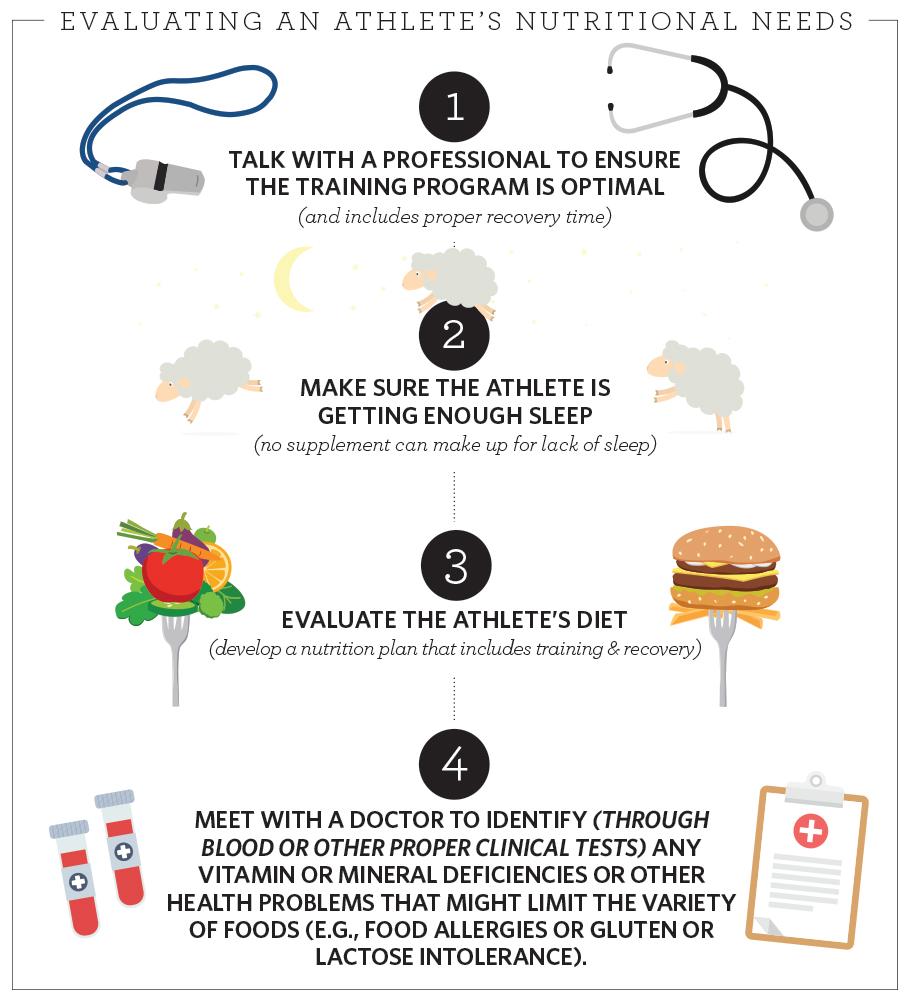
All athletes need good nutrition, but it is up to you to determine whether that nutrition is best obtained through foods or supplements. Under certain circumstances, a dietary supplement may be helpful.
Your first step is to evaluate your nutritional needs, and then identify whether increasing the intake of certain vitamins, minerals, or other ingredients is necessary. You can use the steps below to determine if you need a dietary supplement.
- Talk with a professional to ensure that your training program is optimal for what you are trying to achieve at your age.
- Make sure you are getting enough sleep. There are no supplements that can make up for a lack of sleep.
- Evaluate your diet and develop a nutrition plan that includes training and recovery.
- Meet with a doctor to identify any vitamin or mineral deficiencies or other health problems that might limit the variety of foods you can eat (e.g., food allergies, gluten, or dairy intolerances.
Is there evidence behind the benefits of using dietary ingredients?
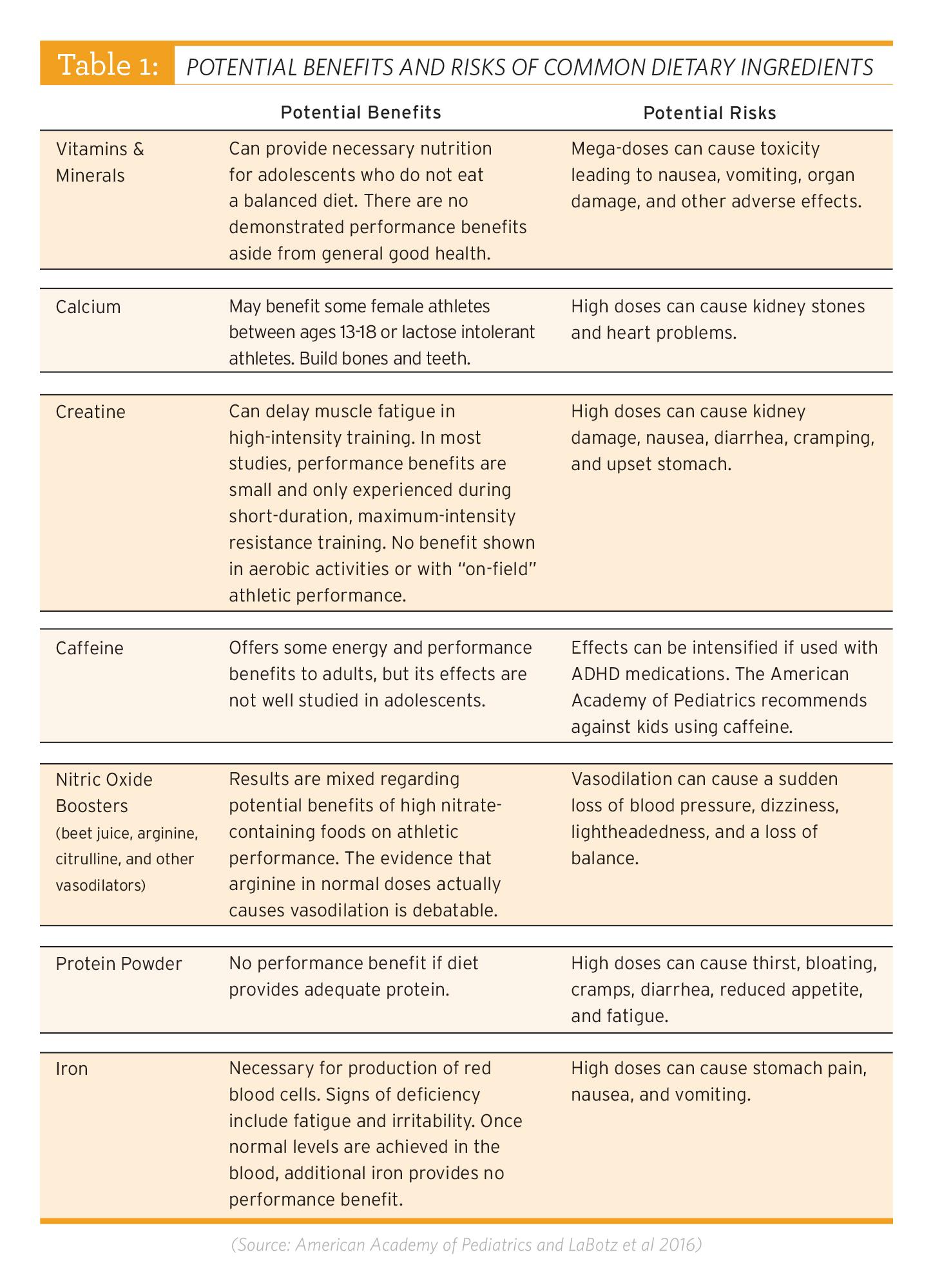
To determine which, if any, dietary supplements can benefit you, it is necessary to first evaluate your metabolic needs and diet.
Since everyone is different, it is not possible to simply say “all athletes need fish oil/vitamin D/branched chain amino acids (BCAAs)” or that “creatine improves the sport performance of every athlete.” For example, creatine can help some athletes in a few specific instances (see Table 1) if they are not eating enough of the right foods, but there is no one-size-fits-all solution.
Table 1 shows some of the potential benefits and risks of commonly asked-about dietary ingredients.
To evaluate whether a specific ingredient would benefit you, it is helpful to consult with a certified sports dietitian or other qualified healthcare provider. If you do not have access to someone with the credentials to help, you can also consult the TrueSport Nutrition Guide for information about dietary ingredients’ effects on health and performance.
If an athlete has an identified nutrient deficiency, the question becomes how to best increase the intake of that ingredient. The U.S. Anti-Doping Agency (USADA) recommends that athletes first try to modify what they eat. However, if it is determined that food alone will not do the trick, then an athlete should undertake a thorough evaluation to minimize the risks around supplement use.
The dietary supplement industry is complicated, and the use of supplements isn’t always necessary. Continue to do your homework. Evaluate your own diet and training regimen to see what changes can be made before turning to supplements.
Can I get the nutrients I need through food?
Most athletes can get what they need from to reach peak performance through food alone. In fact, foods offer more nutrients than you may realize. As you’ll see below, foods outperform supplements in almost every case.
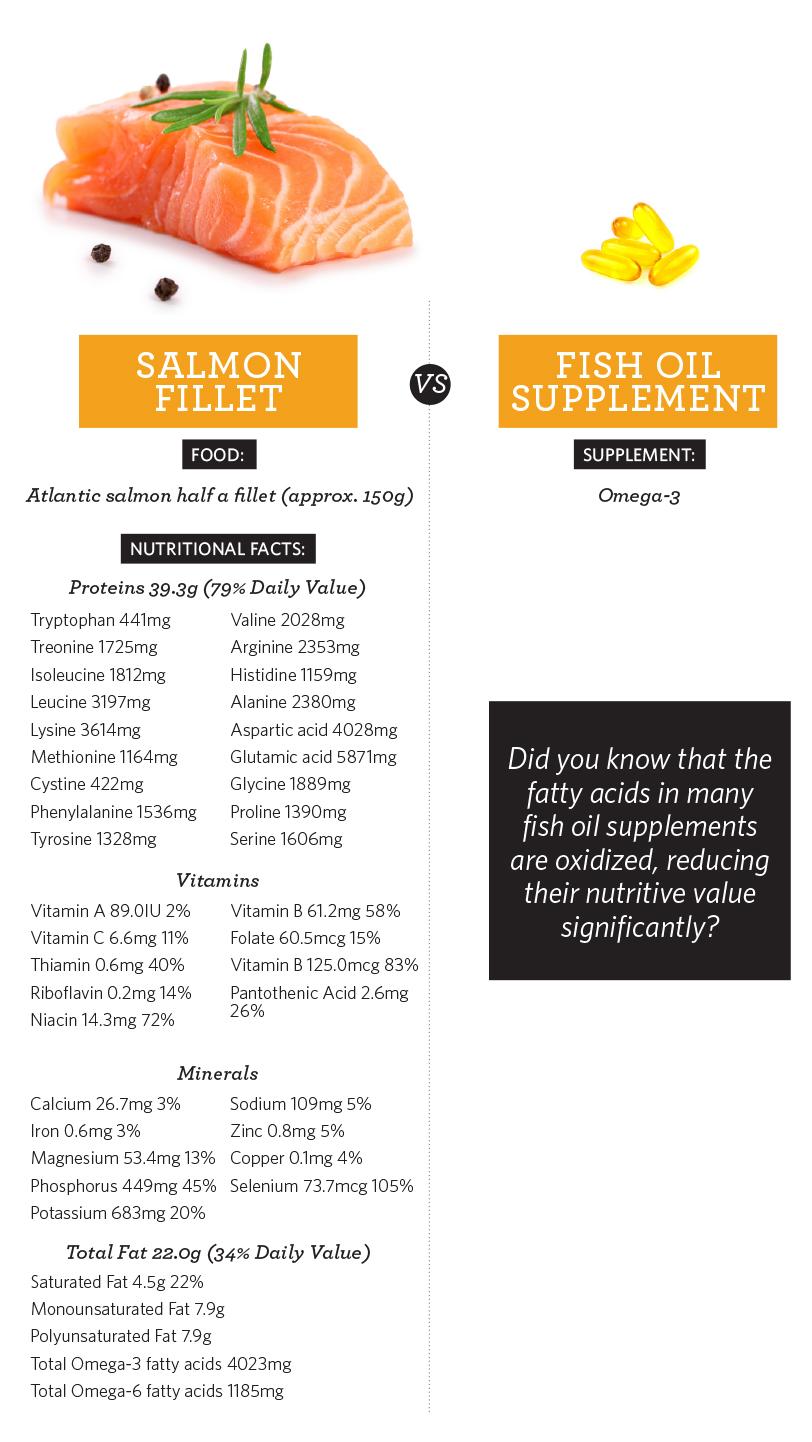
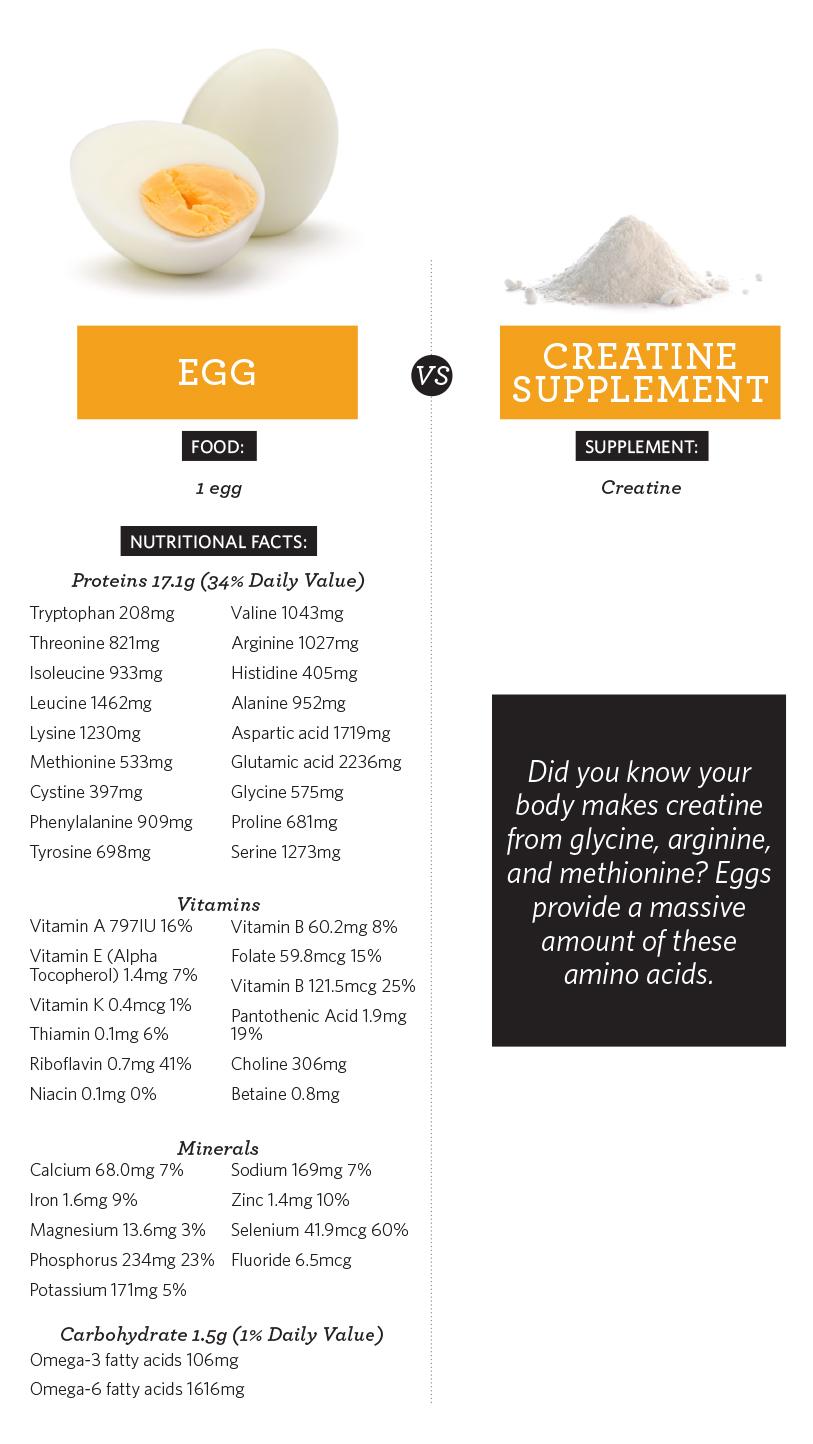
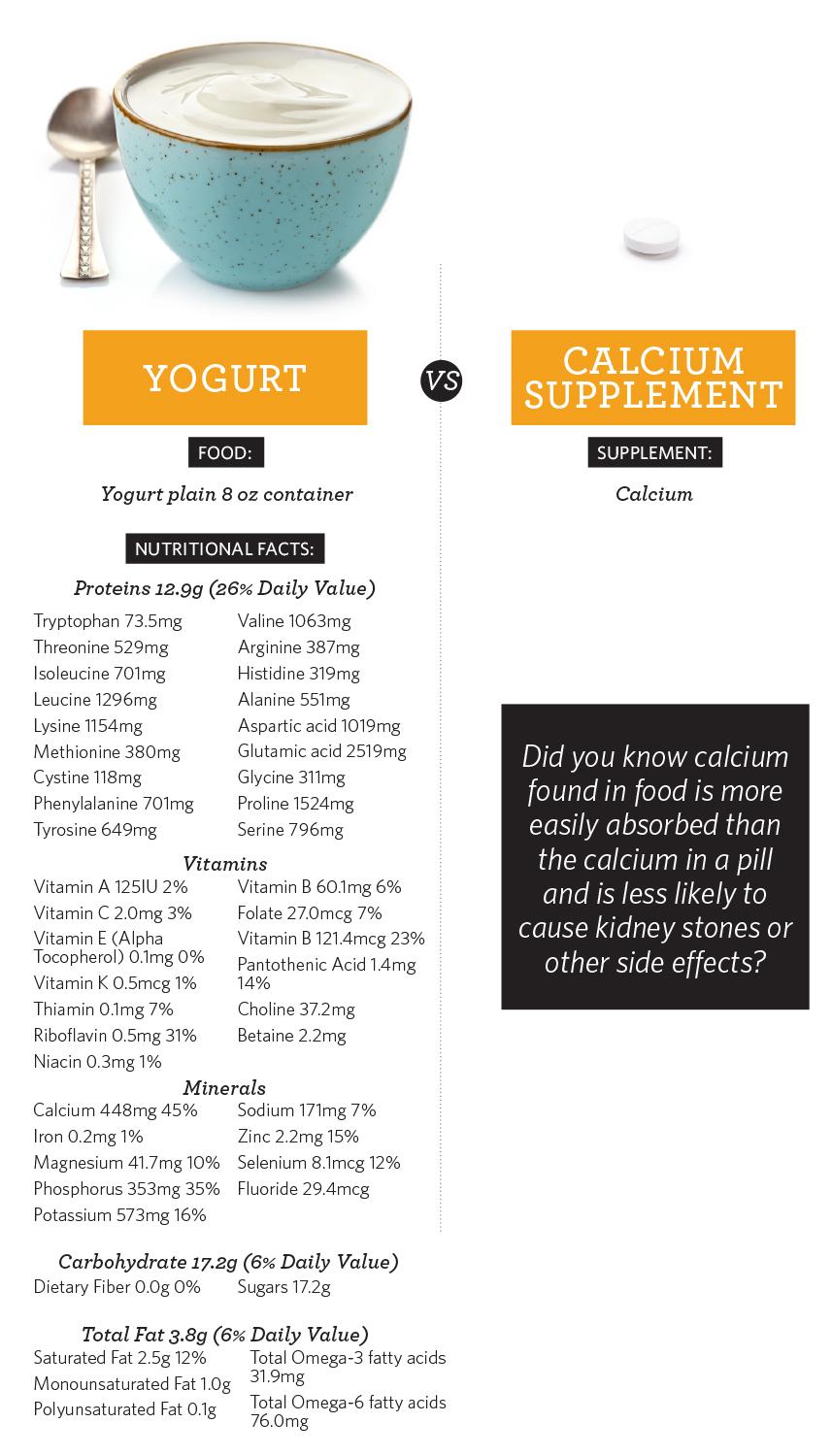
__________________________
Takeaway
In addition to understanding the inherent risks around supplements, it’s important to determine if you even need them. Use this information to get started, and if you do decide that supplements are necessary, check out the next two articles in the Supplement Series to learn which supplements you should always avoid, and which may be safer.


